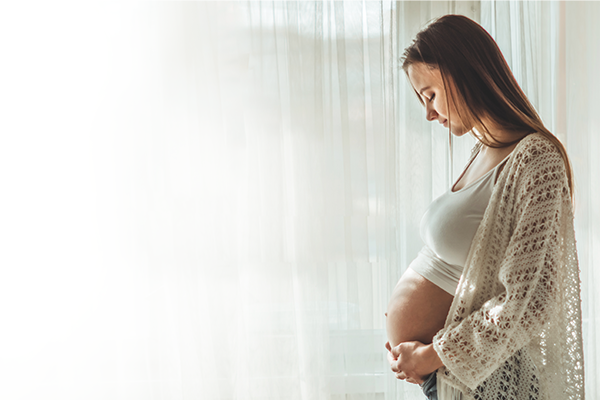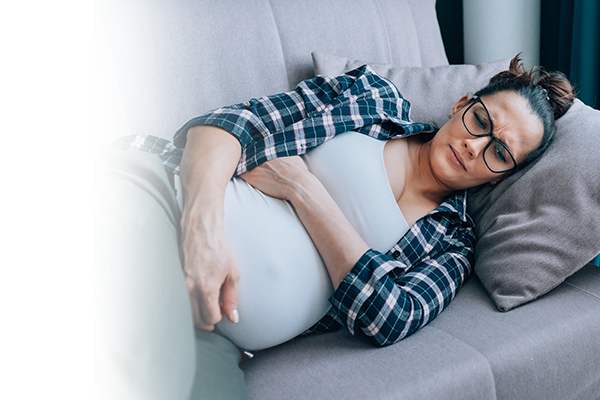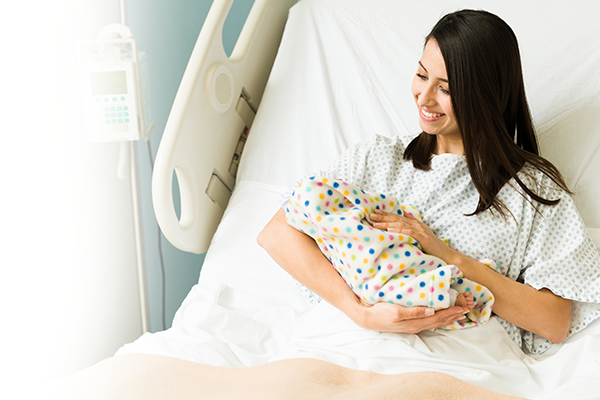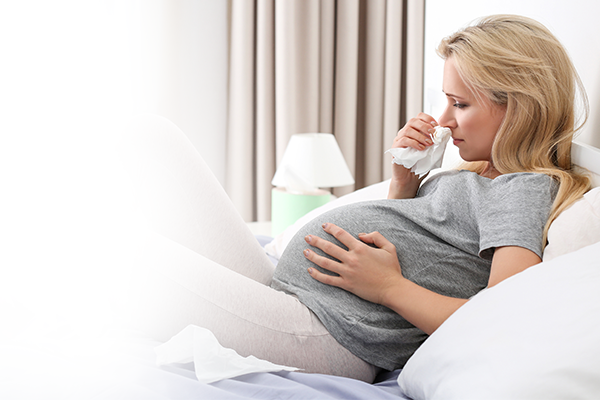Depression during pregnancy is a problem that many moms-to-be face. It is estimated to affect 10-20% of pregnant women. The disease requires appropriate treatment, as its effects can be dangerous to the health of the woman and the developing fetus.
Depression during pregnancy is most often caused by the intense hormonal changes that occur in a woman’s body for nine months. Other reasons for the disease include fear of changing life situations, a tragic event or not feeling supported by a partner. Those women whose episodes of mood disorders occurred before pregnancy are more likely to develop depression during pregnancy.
What are the symptoms of depression in pregnancy?
Symptoms of depression in pregnancy can vary. The disease is characterized not only by lowered mood and tearfulness. Its course may also include:
- Sleep disorders(insomnia or excessive sleepiness),
- Feelings of fatigue and exhaustion,
- Inability to feel pleasure and joy,
- Giving up their current interests,
- negative thoughts,
- A lowering of self-esteem,
- difficulties with decision-making,
- lack of appetite,
- The need to isolate oneself and avoid social contacts,
- concentration difficulties,
- Feelings of fear and anxiety.
Somatic complaints, or physical malaise, are also considered symptoms of depression. A pregnant woman may complain of frequent headaches, abdominal, back or breast pain that have no other cause. It is very common for a mother-to-be to neglect her appearance and personal hygiene.
Suicidal thoughts are considered to be very significant symptoms of depression. The pregnant woman sees the future in black colors or openly admits that she has no desire to live. Such signals cannot be trivialized, because in some people they lead to a suicide attempt.
Depression during pregnancy and its impact on the baby
Depression during pregnancy affects the baby and can contribute to miscarriage, premature birth or significant developmental problems. Very often the disease is associated with a disruption of the relationship between mother and child. There is also an increased risk of future depression in the child.
Depression during pregnancy causes cortisol levels to rise in the mother’s blood, and thus in the body of the developing fetus. This hormone contributes to disorders in the development of the child’s central nervous system and affects the formation of the child’s personality. It is also very common for a woman with depression during pregnancy to not take care of herself, eat improperly or use stimulants. Such behavior also contributes to fetal development disorders.
How to treat depression during pregnancy?
Treatment of depression in pregnancy can be done through several methods. These include:
- individual psychotherapy,
- Joining a support group,
- Drugs for depression during pregnancy.
Treatment of depression during pregnancy should be under the guidance of a psychiatrist and gynecologist. The type of therapy is selected so that the risk of harm to the fetus is minimized.
Find out: How to take care of yourself during pregnancy?
How to deal with depression during pregnancy?
Depression in pregnancy requires professional help and the initiation of appropriate treatment. Without this, it is difficult to recover. However, it is useful to know how to deal with depression during pregnancy and what you can do on your own to feel better and support therapy.
First of all, you should acknowledge your problem and talk to your loved one about how you feel. It is also worth taking care of yourself and focusing on getting plenty of rest, sleep, relaxation and pleasure. It can be a meeting with friends, a walk, a favorite book, a visit to a spa or a trip in nature. Physical activity (suitable for pregnant women) also works well, as exercise releases endorphins and serotonin, considered the happiness hormone.
See also: Postpartum depression – what is it? How is it treated in England?
Rate this article:










